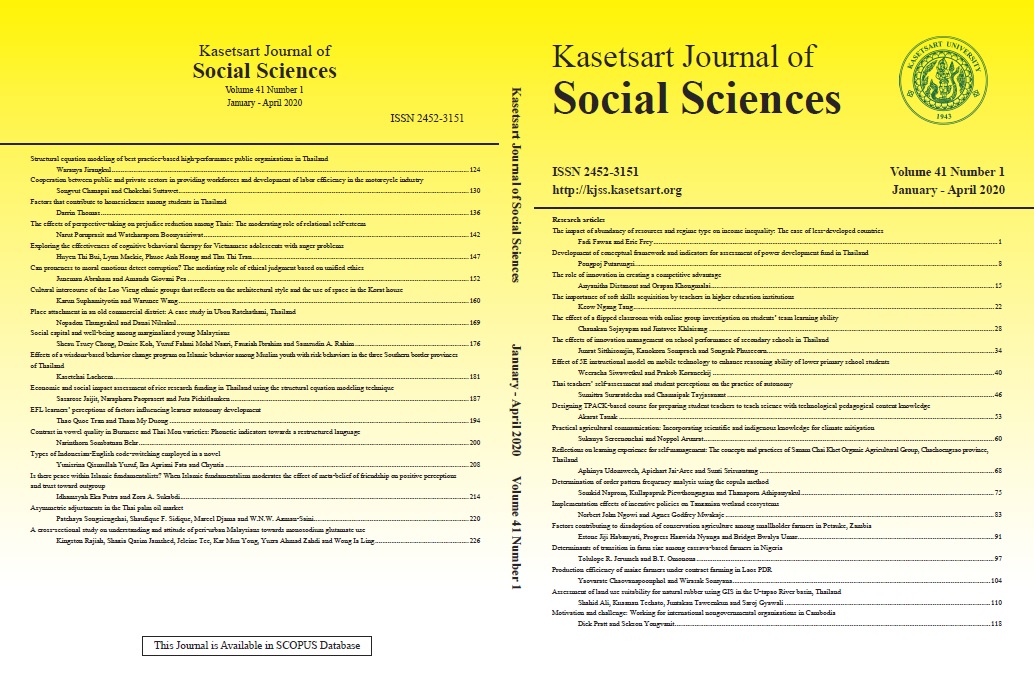Effects of a wisdom-based behavior change program on Islamic behavior among Muslim youth with risk behaviors in the three Southern border provinces of Thailand
Keywords:
effects of program, Islamic behavior, masjids' religious activities, Muslim youth, wisdom-based behavior change programAbstract
The objective of this study was to examine the effects of a wisdom-based behavior change program on Islamic behavior among youths with risk behaviors in the three Southern border provinces. This experimental research using a true control group pretest posttest design was conducted with 120 youths from three communities selected through purposive sampling from those with the lowest and highest scores for an Islamic Behavior Test. The experimental group consisted of 20 subjects who participated in a wisdom-based behavior change program, and the control group consisted of 20 subjects who participated in masjid religious activities. The participants in the two groups consisted of subjects who had high scores and those who had low scores. The experiment was conducted as planned from September 2016 to February 2017. Independent sample t-tests and paired samples ttests were performed with the data. The study found that before participation in the programs, the average scores for knowledge, attitude, and Islamic behavior of the two groups were not different. However, after their participation in the programs, the scores of
the experimental group were significantly higher than those of the control group at the .001 level, and the average scores for their knowledge, attitude, and Islamic behavior were higher by 1.31, 1.30, and 1.11, respectively.
Downloads
Published
How to Cite
Issue
Section
License
Copyright (c) 2018 Kasetsart University

This work is licensed under a Creative Commons Attribution-NonCommercial-NoDerivatives 4.0 International License.
This is an open access article under the CC BY-NC-ND license http://creativecommons.org/licenses/by-nc-nd/4.0/










